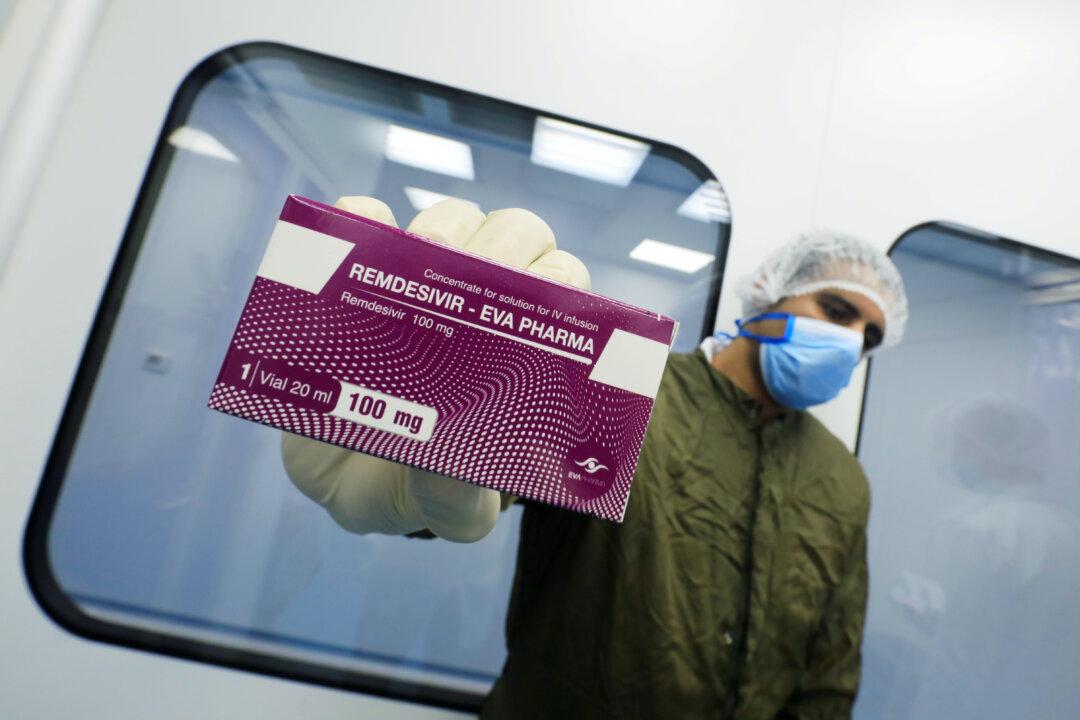Remdesivir has little effect on hospitalized COVID-19 patients who are on ventilators, according to results from a World Health Organization-backed (WHO) randomized trial and analysis.
The results, published in The Lancet (pdf), evaluated 14,221 patients from 454 hospitals in 35 countries, including 8,275 who were randomly assigned to receive up to 10 daily infusions of remdesivir or a control drug between March 2020 and January 2021—coming before the emergence of the Delta and Omicron COVID-19 variants.





